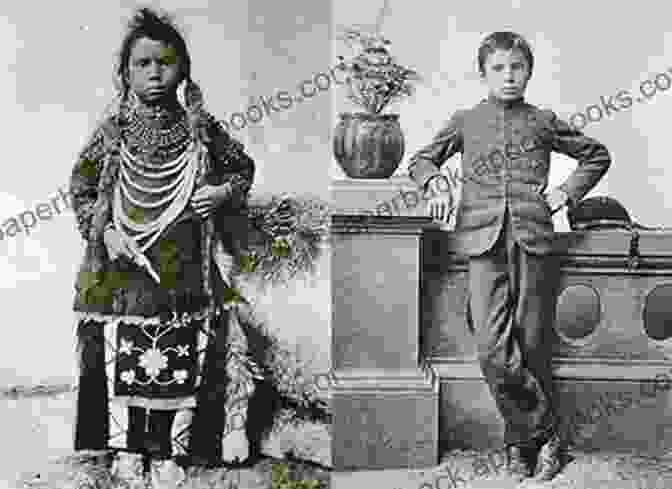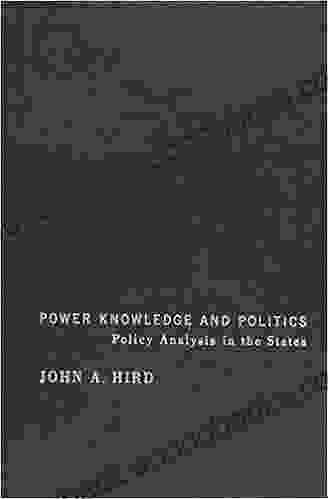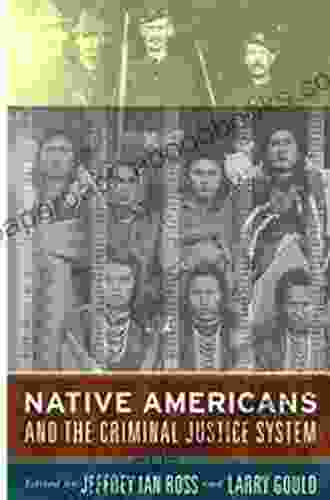Native Americans and the Criminal Justice System: Unraveling the Intersections

5 out of 5
| Language | : | English |
| File size | : | 1291 KB |
| Text-to-Speech | : | Enabled |
| Screen Reader | : | Supported |
| Enhanced typesetting | : | Enabled |
| Word Wise | : | Enabled |
| Print length | : | 268 pages |
Exploring a History Steeped in Disparities
The relationship between Native Americans and the criminal justice system in the United States is a complex tapestry woven with both historical injustices and present-day challenges. This intricate narrative is marked by disproportionate rates of incarceration, racial profiling, and cultural misunderstandings that have created a cycle of marginalization for Native American communities.
To fully grasp the current state of affairs, it's imperative to journey back in time and uncover the deep-rooted origins of these disparities.
Tracing the Roots of Injustice
The relationship between Native Americans and the criminal justice system has been shaped by centuries of colonization, assimilation policies, and systemic racism. Beginning with the arrival of European colonizers, Native American tribes were subjected to a process of forced assimilation and displacement that eroded their traditional legal systems.
The establishment of federal Indian reservations further contributed to these disparities, as Native Americans living on reservations fell under the jurisdiction of both tribal and federal law enforcement.

Mass Incarceration: A Crisis that Disproportionately Affects Native Americans
One of the most pressing issues confronting Native American communities today is the alarming rate of mass incarceration. Native Americans are incarcerated at a rate five times higher than their white counterparts, making them the most overrepresented racial group in the U.S. criminal justice system.
The contributing factors to this disparity are multifaceted and include poverty, lack of educational opportunities, and limited access to healthcare. Furthermore, Native Americans often face racial profiling and cultural misunderstandings by law enforcement, leading to higher rates of arrest and sentencing.
Bridging the Gap: The Importance of Cultural Competence
Addressing the challenges faced by Native Americans in the criminal justice system requires a deep understanding of their unique cultural perspectives and values. Cultural competence is essential for law enforcement officers, judges, and other criminal justice professionals to effectively interact with Native American communities.
Training programs that focus on cultural awareness, traditional practices, and communication styles can help bridge the gap between the criminal justice system and Native American communities. By fostering respect and understanding, cultural competence can reduce bias, improve communication, and contribute to more just outcomes.
Restorative Justice: A Path to Healing and Reconciliation
In recent years, there has been a growing movement towards incorporating restorative justice principles into the criminal justice system when dealing with Native American offenders. Restorative justice seeks to repair harm caused by crime and rebuild relationships between victims, offenders, and the community.
Restorative justice practices, such as victim-offender mediation and community conferencing, provide opportunities for Native American offenders to take responsibility for their actions, learn from their mistakes, and make amends to those they have harmed.

Honoring Tribal Sovereignty: A Key to Empowering Native Communities
The recognition and respect for tribal sovereignty is fundamental to addressing the challenges faced by Native Americans in the criminal justice system. Tribal sovereignty refers to the inherent right of Native American tribes to govern themselves and make their own laws.
Expanding tribal jurisdiction over criminal matters allows Native American communities to develop and implement justice systems that are culturally appropriate and responsive to their unique needs. This includes the establishment of tribal courts, police forces, and correctional facilities that incorporate traditional values and practices.
Community-Based Approaches: Empowering Native American Communities
Community-based approaches to criminal justice have emerged as a promising strategy to address the needs of Native American communities. These approaches involve partnering with Native American organizations, elders, and community leaders to develop culturally responsive programs and initiatives.
Community-based approaches focus on prevention, diversion, and reentry programs that address the root causes of crime and provide support to Native American individuals and families. These programs may include mentoring, job training, substance abuse treatment, and housing assistance.
A Call to Action: Reimagining Justice for Native Americans
The challenges faced by Native Americans in the criminal justice system demand a comprehensive and concerted effort to create a more just and equitable society. This requires collaboration among Native American communities, criminal justice professionals, policymakers, and the general public.
By promoting cultural competence, expanding tribal sovereignty, implementing restorative justice practices, and investing in community-based approaches, we can work towards a future where Native Americans are treated with dignity and respect in the criminal justice system.
Recommended Reading and Resources
- National Institute of Justice: Native Americans and the Criminal Justice System
- The Sentencing Project: Incarceration of Native Americans in the United States
- American Civil Liberties Union: Mass Incarceration of Native Americans
- International Institute for Restorative Practices: What is Restorative Justice?
- Native American Rights Fund
5 out of 5
| Language | : | English |
| File size | : | 1291 KB |
| Text-to-Speech | : | Enabled |
| Screen Reader | : | Supported |
| Enhanced typesetting | : | Enabled |
| Word Wise | : | Enabled |
| Print length | : | 268 pages |
Do you want to contribute by writing guest posts on this blog?
Please contact us and send us a resume of previous articles that you have written.
 Book
Book Novel
Novel Page
Page Chapter
Chapter Text
Text Story
Story Genre
Genre Reader
Reader Library
Library Paperback
Paperback E-book
E-book Magazine
Magazine Newspaper
Newspaper Paragraph
Paragraph Sentence
Sentence Bookmark
Bookmark Shelf
Shelf Glossary
Glossary Bibliography
Bibliography Foreword
Foreword Preface
Preface Synopsis
Synopsis Annotation
Annotation Footnote
Footnote Manuscript
Manuscript Scroll
Scroll Codex
Codex Tome
Tome Bestseller
Bestseller Classics
Classics Library card
Library card Narrative
Narrative Biography
Biography Autobiography
Autobiography Memoir
Memoir Reference
Reference Encyclopedia
Encyclopedia Jillian Mahaffey
Jillian Mahaffey Pam Wedgwood
Pam Wedgwood Jillani Birech
Jillani Birech Jean Pierre Chavoin
Jean Pierre Chavoin Pam Weaver
Pam Weaver Jinx James
Jinx James Jean Racine
Jean Racine Kimani Lauren
Kimani Lauren Marie Bostwick
Marie Bostwick Michael A Figueroa
Michael A Figueroa Joel Plaag
Joel Plaag Jessica Peck
Jessica Peck Jo Ellan Dimitrius
Jo Ellan Dimitrius Linda Alfiori
Linda Alfiori John A Hird
John A Hird Klaus Wiegrefe
Klaus Wiegrefe Joe Papa
Joe Papa Jen Lucas
Jen Lucas Jeremy Perry
Jeremy Perry Jennifer Hillier
Jennifer Hillier
Light bulbAdvertise smarter! Our strategic ad space ensures maximum exposure. Reserve your spot today!
 Chase SimmonsFollow ·17k
Chase SimmonsFollow ·17k Hudson HayesFollow ·13.1k
Hudson HayesFollow ·13.1k Kurt VonnegutFollow ·15.4k
Kurt VonnegutFollow ·15.4k Ralph EllisonFollow ·16.4k
Ralph EllisonFollow ·16.4k Lee SimmonsFollow ·5k
Lee SimmonsFollow ·5k Galen PowellFollow ·8.1k
Galen PowellFollow ·8.1k Martin CoxFollow ·10.6k
Martin CoxFollow ·10.6k Ken FollettFollow ·6k
Ken FollettFollow ·6k

 Preston Simmons
Preston SimmonsEmbark on a Literary Odyssey with "Walking on Water": A...
Prepare to be swept...

 Ernesto Sabato
Ernesto SabatoUnlocking Policy Analysis: Dive into the Intricacies of...
: The Realm of Policy...

 Forrest Reed
Forrest ReedThe Road to Grace Walk: A Journey of Spiritual Growth and...
In the tapestry of life, we...

 Evan Simmons
Evan SimmonsTip Neill and the Democratic Century: A Political Odyssey...
The Rise of a Political Giant In the...

 Mark Mitchell
Mark MitchellUnwrap the Magic: A Review of Christmas Memory by Richard...
As the cold winter months draw near, and...

 Percy Bysshe Shelley
Percy Bysshe ShelleyBeyond the Veil: Delve into the Realm of Spirit with In...
Unveiling the Mysteries of the Unseen...
5 out of 5
| Language | : | English |
| File size | : | 1291 KB |
| Text-to-Speech | : | Enabled |
| Screen Reader | : | Supported |
| Enhanced typesetting | : | Enabled |
| Word Wise | : | Enabled |
| Print length | : | 268 pages |












